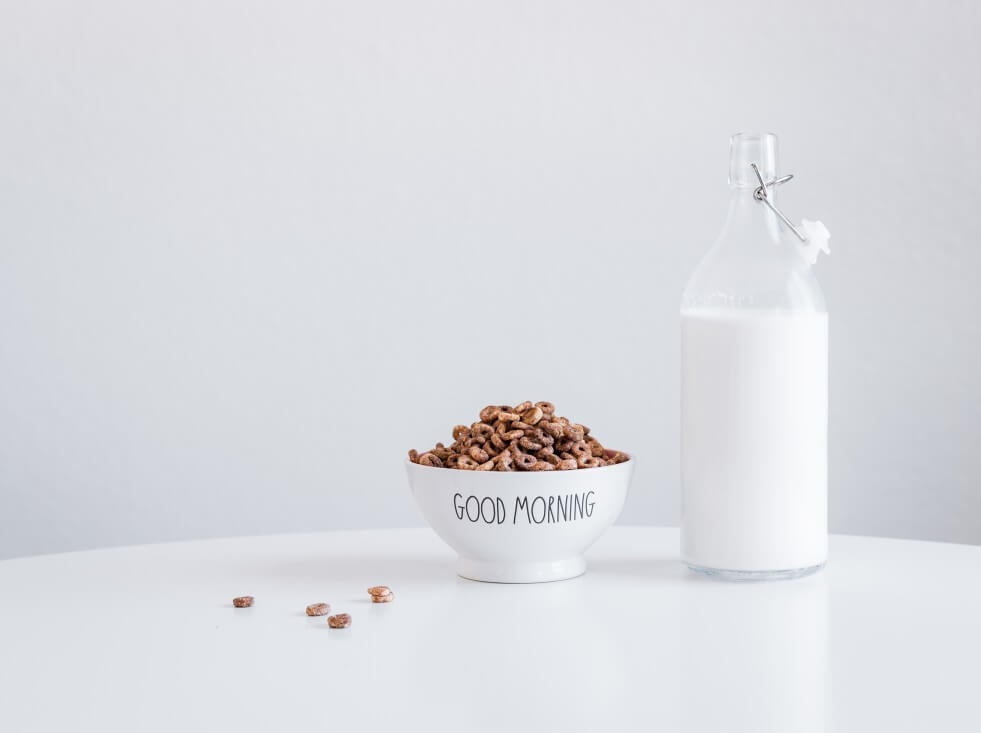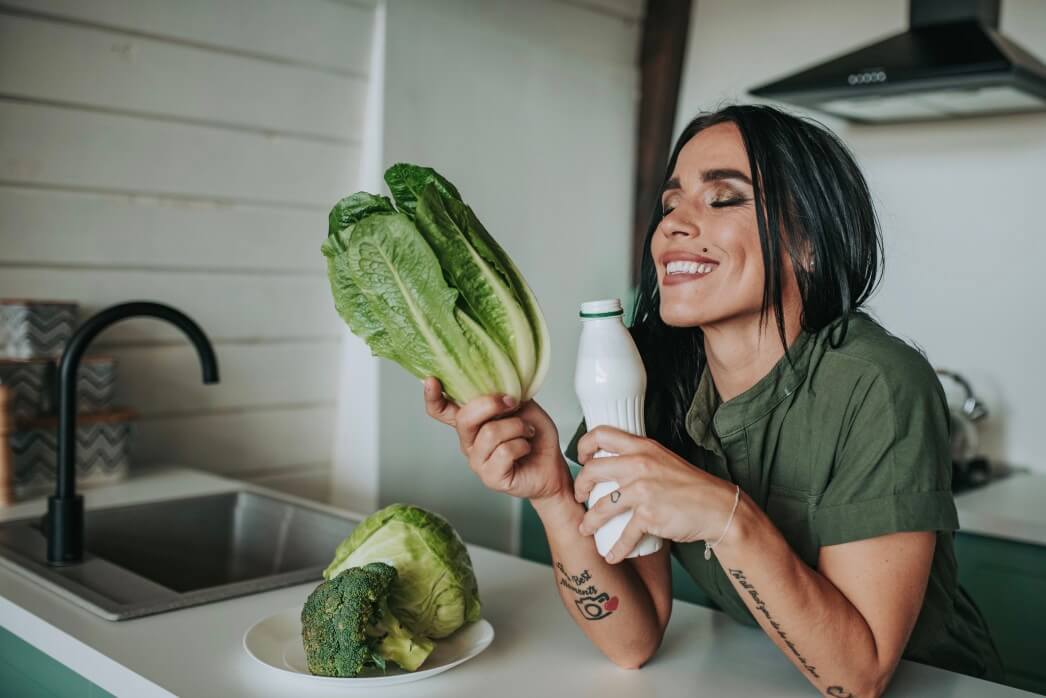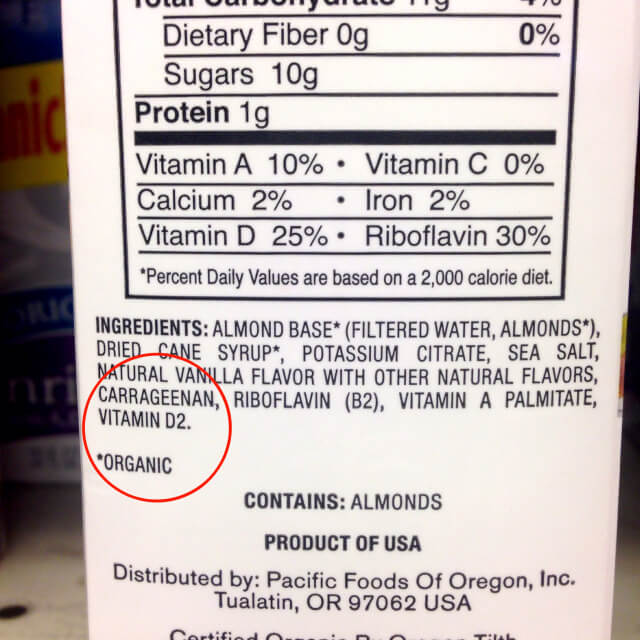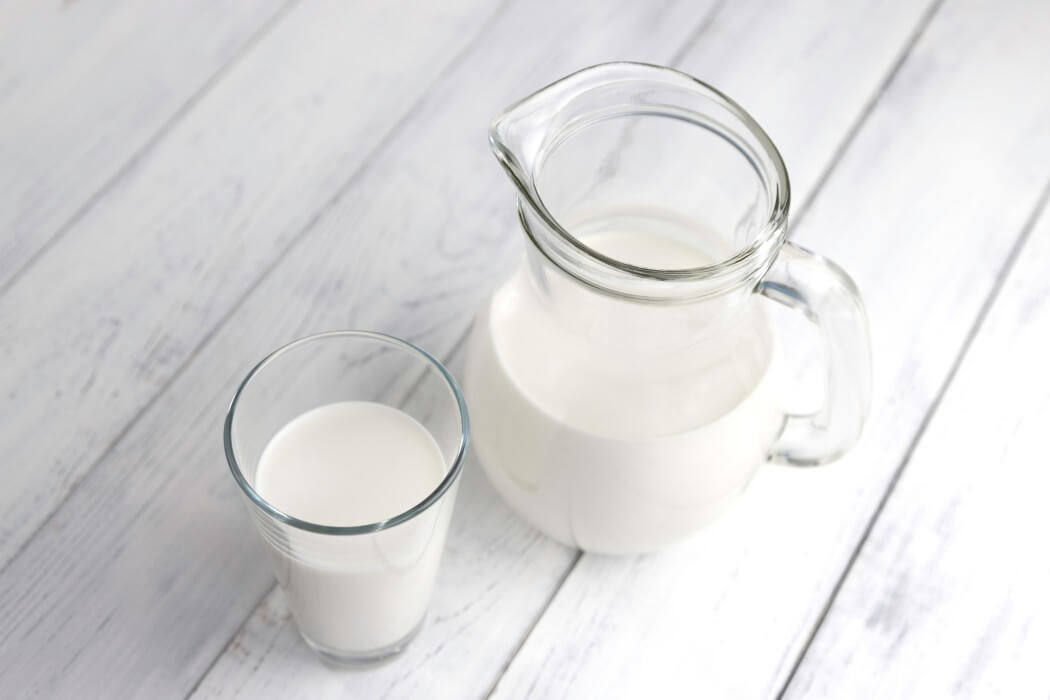Upon first glance, "Mylk" seems like nothing more than a typo. But you may have actually seen this word used before when describing an alternative to dairy milk. So what exactly is mylk?
Mylk is just an outdated way of spelling Milk in English. But today, the word "Mylk" is used specifically to refer to non-dairy milk products, such as almond milk, oat milk, coconut milk, and the like. It's just a broad term for milk you'd get from plants.
Naturally, this means there are all sorts of different types of Mylk out there, since it's such a broad category.
In this article, we'll not only discuss what types of Mylk exists but how it compares to standard dairy milk and why you may want to consider it.
Mylk vs Milk
Besides an obvious difference in spelling of course, the main thing to keep in mind about Mylk is that it is not a dairy product like cow milk, meaning it doesn't come from an animal.
Despite looking aesthetically similar, milk and Mylk are completely different things.
On a technicality, milk by definition can include "the white juice of plants and trees" which can obviously lead to some confusion between the two.
This is the main reason the term "Mylk" is becoming more popular, as it easily separates the identity of the two products that appear similar, but are very different.
Why does this matter?
Well, there are plenty of reasons you may not want to drink cow milk.
Perhaps you are lactose intolerant? Or maybe you're a vegan? Maybe you're just not that interested in normal milk.
Experts estimate that about 68% of the world’s population has difficulty digesting lactose. (source)
Regardless, there are a lot of people out there who would much prefer plant milk and the "Mylk" name makes it easy to differentiate.
Just keep in mind that a similar pronunciation is about all these two things have in common.
And while Mylk can be used as a dairy alternative, you shouldn't go into things expecting it to be just like regular milk, taste, and all.

Mylk is More Sustainable Than Milk
For those who are eco-friendly in spirit, there is another particularly good reason to drink Mylk instead of dairy, and that's the fact that Mylk products are a lot more sustainable for the environment. It doesn't use nearly as many resources to make, nor does it produce as much waste.
Obviously, the milk that people primarily consume is from cows. Well, it takes a lot of land, as well as food and water, to sustain a dairy farm full of cows.
It takes much less of all of those things to produce an equivalent amount of Mylk.
Studies show that the amount of land required to produce dairy milk compared to Mylk is about nine times more. On top of that, the production of dairy milk creates about three times more greenhouse gasses, which isn't fantastic.
This is not to say that dairy milk is some terrible evil that we should all despise. But if you are worried about your impact on the environment, Mylk often helps alleviate that impact, which is a major reason it is desirable for many consumers out there.
Is Mylk Always Vegan?
Being a vegan is a big reason why someone might want to give Mylk a try.
But can you rest assured that Mylk will always be vegan?
Well, not exactly.
Mylk in and of itself is obviously vegan because it comes from plants like nuts.
However, this doesn't mean animal products cannot be put into a Mylk product after the fact.
Always read all of the ingredients on any Mylk product you buy, because they are not necessarily guaranteed to be vegan.

Is Mylk Good For You?
OK, so it's all well and good that this other stuff is true of Mylk. But at the end of the day, you probably want to know whether or not Mylk is actually healthy.
It sounds like it should be healthy, but is it really? The good news is, there's nothing to worry about.
Extra ingredients may be added to Mylk, but at its most pure form, Mylk is comprised of a whopping two ingredients: water, and the milk of some plant, like a nut, seed, or grain.
Unless something else is added to it, there's nothing else in it. If you make your own Mylk, you'll always know what's in it.
What this means is that Mylk offers similar health benefits of its source.
It's kind of like squeezing an orange and drinking the juice: you'll get many of the same types of nutrients and vitamins that are in the orange proper.
Be aware that the nutritional profile of a mylk won't be 100% identical to the mylk source since some of the nutrients do get squeezed out during the mylk-making process.
One benefit of Mylk is it's often fortified with nutrients and vitamins, which sometimes gives you even more nutrients. So while you may lose some macronutrients like healthy fats and protein when you turn a grain or nut into milk, you can make up for it with added micronutrients and nutrients.
A good example of this is comparing a serving of almonds to a serving of almond milk.
You'll notice that whole almonds have more protein, fat, and carbohydrates than almond milk. But almond milk has higher levels of vitamins when it has been fortified (which is often the case with store-bought Mylk).
1 Serving | Almonds | Almond Milk |
|---|---|---|
Calories | 164 | 41 |
Protein | 6g | 1g |
Fat | 14g | 3g |
Carbohydrates | 6g | 2g |
Fiber | 4g | 1g |
Sugar | 1g | 1g |
Calcium | 76mg | 101mg |
Iron | 1mg | .36mg |
Potassium | 208mg | 190mg |
Vitamin A | .57IU | 499IU |
Vitamin D | - | 101IU |
Is Store-Bought Mylk Trustworthy?
Unfortunately, there are just some things one has to accept: if you're buying Mylk from a store, it's probably going to have additives or preservatives of some sort in it.
After all, they have to be able to last in storage and on shelves for quite some time.
On top of that, companies are trying to produce consistency whenever they can.
So when they get an odd batch of nuts or seeds, they may add things to them to ensure the final product is the same as all the others in the production line.
But is that actually a bad thing? Naturally, it depends on the product.
Silk, for example, is a very well-known brand when it comes to Soy Mylk.
But it contains many additives, such as Tricalcium phosphate or Gellan Gum. Almond Breeze makes almond Mylk with Carrageenan in it.

These additives aren't always necessarily bad for you.
Gellan Gum for instance, has been shown to be safe to consume in small amounts. However, it'll be up to you to read an ingredient label and know what is what.
Just be aware that nearly all store-bought Mylk will have additives of some kind.
While many additives in plant-based milk are generally safe, we recommend avoiding milk that contains Carrageenan when possible. See this study for more information.
What Types of Mylk Are There, and How Do They Compare?
As you may have surmised by now, there are many different types of Mylk out there.
They've all got different traits, especially when it comes to calories, carbs, fat and protein.
The list below will give you a rough idea of how the many different types of Mylk stack up. First up is dairy milk for a baseline.
- Whole Dairy Milk: 146 calories, 8g fat, 8g protein, 13g carbs
- Soy Mylk: 80-90 calories, 4-45.g fat, 7-9g protein, 4g carbs
- Oat Mylk: 140–170 calories, 4.5–5g of fat, 2.5–5g of protein, 19–29g carbs
- Coconut Mylk: 45 calories, 4g of fat, no protein, no carbs
- Almond Mylk: 30–35 calories, 2.5g of fat, 1g of protein, 1–2g of carbs
- Rice Mylk: 130–140 calories, 2–3g of fat, 1g of protein, 27–38g carbs
- Macadamia Mylk: 50–55 calories, 4.5–5g of fat, 1–5g of protein, 1g carbs
- Cashew Mylk: 25–50 calories, 2–4g of fat, 0–1g of protein, 1–2g carbs
- Quinoa Mylk: 70 calories, 1g of fat, 2g of protein, 12g carbs
As you can see, there is a lot of variation in the types of Mylk out there. Which one is best for you depends on what you need the most in your diet.
Of course, it also goes without saying that most of these Mylks taste different, and the one that tastes "best" is different for everyone.
On top of that, these different sources have various pros and cons as well.
Oat milk, for example, have beta-glucan in them, which helps lower cholesterol levels.
Soy, on the other hand, has pretty much all of the amino acids you need. Take these things into consideration when choosing the right Mylk for you.

Got Mylk?
So, Mylk: it's the term being used more commonly these days to refer to plant-based milk as opposed to dairy.
That includes milk from grains, seeds, and nuts.
This means that Mylk is more sustainable than dairy, and is likely to comply with a vegan lifestyle.
There are many different types of Mylk, and you can expect them each to taste different and offer different nutritional values based on the source.
If you buy Mylk from a store, be aware that they will often have additives in them, as many products must in order to remain on shelves without spoiling for long periods of time.
However, not all additives are bad for you. Be sure to check the ingredient label on Mylk products and see what might be in them.
